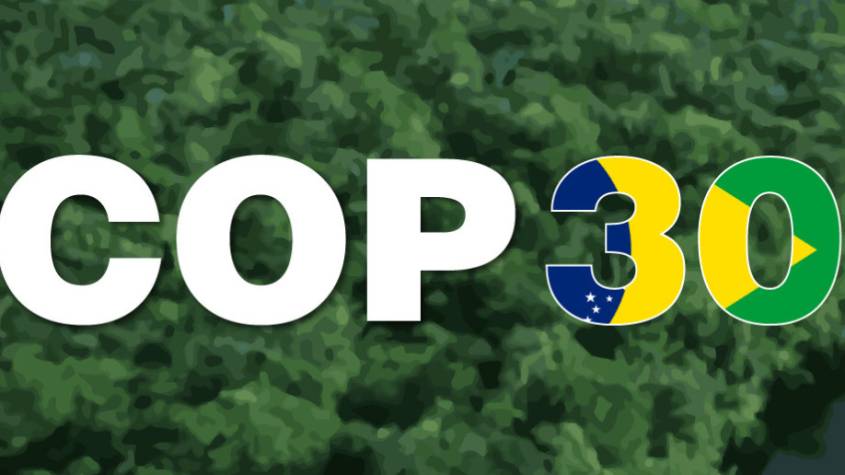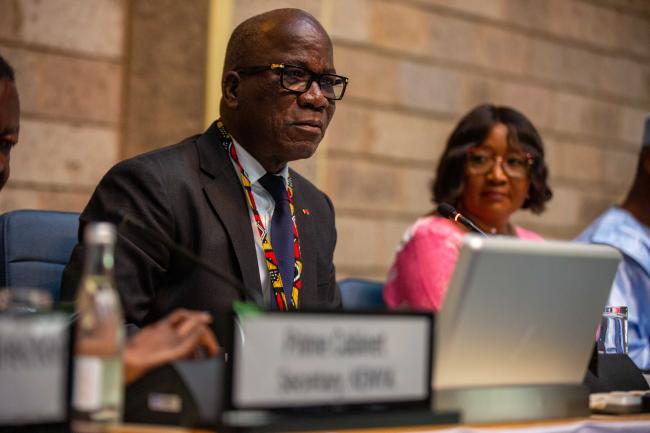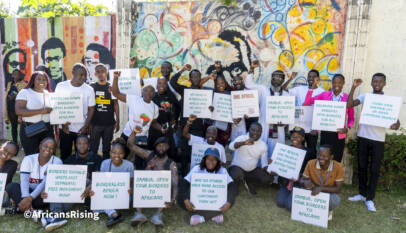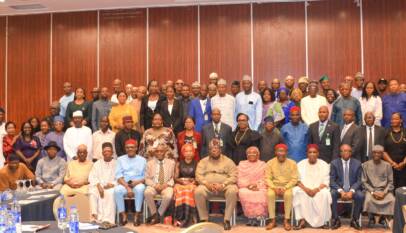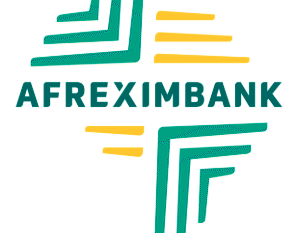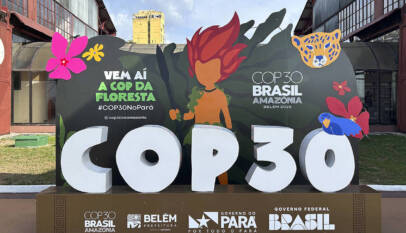COP30: African Ministers Reject ‘Dangerous’ Solar Geoengineering Technologies
Ahead of COP30, the 20th African Ministerial Conference on the Environment (AMCEN20) has rejected what they call ‘Dangerous’ Solar Geoengineering Technologies, calling for equitable climate finance to address the continent’s escalating climate challenges and support its adaptation priorities.
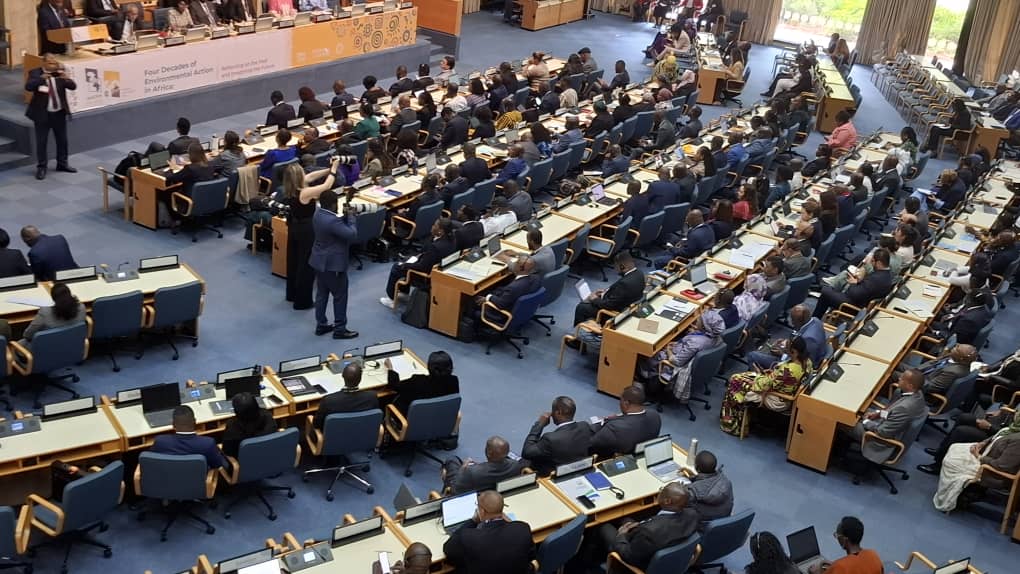
AMCEN20 was hosted earlier in July by the State of Libya in Nairobi, Kenya, with representatives from 53 countries. The official AMCEN20 decision on Africa’s engagement at the upcoming UN Environment Assembly (UNEA-7) rejected what they call ‘Dangerous’ Solar Geoengineering Technologies: “We reiterate our position that such technologies pose significant and uncertain environmental, ethical and geopolitical risks, and must not be considered as viable options within the multilateral environmental agenda.”
AMCEN20 also renewed the call for equitable climate finance to address the continent’s growing climate challenges, emphasizing the urgent need for concrete commitments at COP30 that reflect Africa’s climate adaptation and mitigation priorities.
The environment ministers also highlighted the glaring disparity between Africa’s minimal contribution to global emissions and the disproportionate burden of climate impacts it faces. They called for increased public financing, technology development and transfer, and support for loss and damage, adaptation, and a just transition.
The African ministers emphasized that the Baku-to-Belém roadmap must hold developed countries accountable for delivering on their climate finance obligations, as stipulated in the Paris Agreement. They called for the full and transparent realization of the adaptation finance doubling goal and urged that COP30 adopt a new, ambitious climate finance target—one that aligns with Africa’s $845 billion adaptation needs between 2020 and 2035, the highest of any region.
The conference also reiterated calls to reform international financial institutions to better align with Africa’s development agenda and prioritize grants and concessional funding over loans, which continue to exacerbate debt vulnerabilities across the continent. The ministers also underscored the need for just and equitable transition pathways, calling for strategies that harness Africa’s natural resource base—including critical minerals— to drive sustainable economic growth and development across the continent.
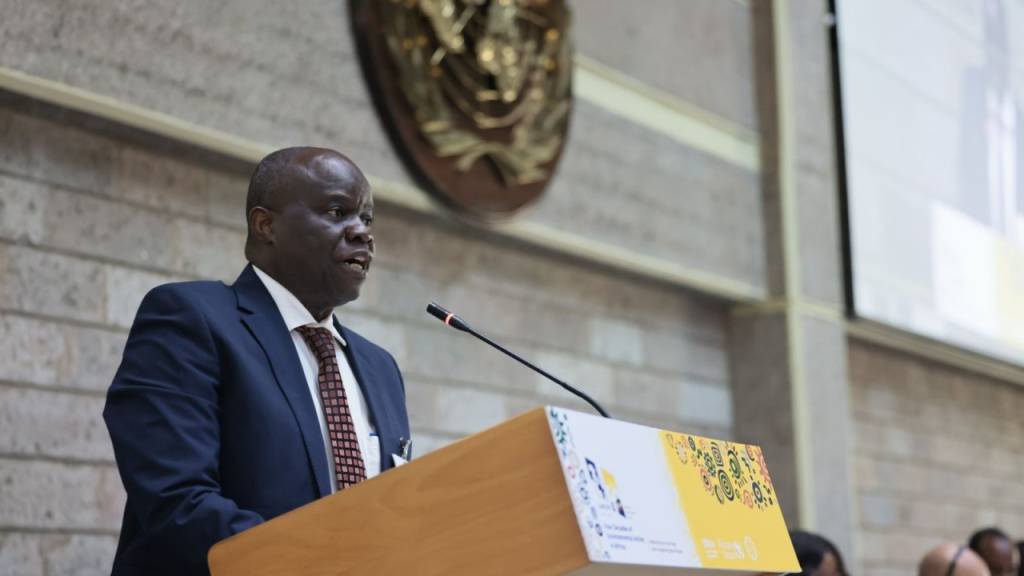
“We Must Ensure Just, Equitable Transition” – Chair of African Negotiators
Mr. Richard Muyungi, Chair of the African Group of Negotiators, emphasized that COP30 must prioritize the finalization of discussions on the Global Goal on Adaptation (GGA), underscoring the need for indicators that track how developed countries are supporting Africa, especially through adaptation finance and technology transfer, and how these are linked to the means of implementation.
“Finance must be prioritized. We want to see progress on the Baku-to-Belém roadmap, particularly the operationalisation of the $1.3 trillion target agreed in Baku. This will allow us to approach 2035 with a clear roadmap for how these committed resources from developed countries will be mobilised. We also expect robust support for the preparation and implementation of National Adaptation Plans at the country level,” Muyungi stressed.
“Biggest Polluters Must Show Accountability” –Côte d’Ivoire Environment
“It will also mean advancing climate justice by ensuring simplified, equitable, and direct access to climate finance, especially for the most vulnerable countries. For us Africans, succeeding at COP30 also means being recognised as providers of nature-based, innovative, and sustainable solutions for a low-carbon and climate-resilient future,” said Konan.
“COP 30 must Reflect Fair, Inclusive Climate Agenda”
Mr. Christopher Kabah, Director of Planning and Policy at Liberia’s Environmental Protection Agency said for Africa, COP30 must move beyond speeches and symbolism to deliver meaningful, results-driven negotiations that produce tangible solutions to the continent’s most urgent climate challenges.
“Africa demands honest commitment from all parties, particularly developed countries, to take measurable and accountable actions that match the scale of the crisis. For Africa, true success lies in unity. The continent must come together with a clear, collective voice to demand fair treatment, increased climate financing, and stronger partnerships that extend beyond the walls of conference halls.
Kabah then called on African countries to take bold steps to address climate impacts at home by integrating and scaling up indigenous knowledge systems that have for centuries helped communities adapt to changing environments into their climate adaptation strategies.
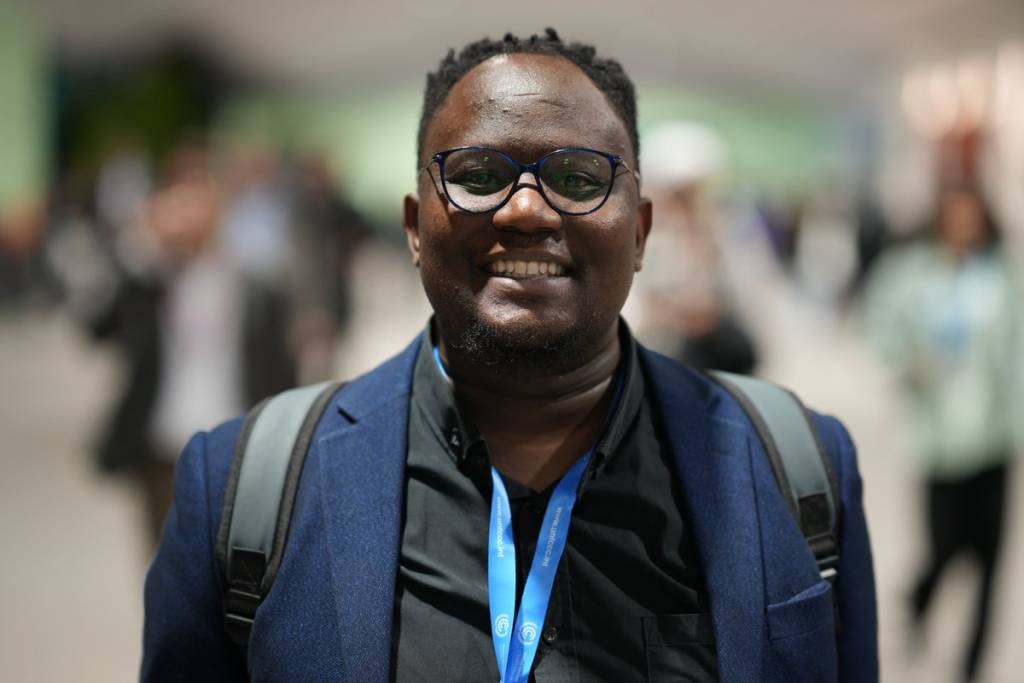
Climate Justice Groups Reject ‘Dangerous’ Solar Geoengineering Technologies
Mr. Dean Bhekumuzi, Just Transitions Lead at Power Shift Africa, also strongly condemned Solar Radiation Management (SRM), calling it a dangerous and short-sighted ambition that exposes a critical misalignment between geoengineering and the real needs of climate-vulnerable nations.
“This decision is not just a refusal of false solutions, but a clear signal to global leaders that the path forward is not in atmospheric manipulation. It lies in confronting the root causes of climate collapse and investing in equitable, lasting solutions. Africa is demonstrating that principled leadership is both possible and essential,” he said.
Bhekumuzi described SRM and similar geoengineering approaches as “extreme, risky, and illusory” schemes being imposed on the Global South, especially Africa, praising African Ministers at AMCEN20 for sending a resounding message that solar geoengineering has no place in Africa’s climate future and must be permanently rejected.
Mr. Josué Aruna, Executive Director of the Congo Basin Conservation Society (CBCS-Network) in the Democratic Republic of Congo, expressed African civil society’s gratitude to African governments for acknowledging the voices of communities historically marginalized by colonialism, particularly regarding the threats posed by geoengineering technologies such as Solar Radiation Management (SRM).
“African civil society remains convinced that the only real way to combat climate change is through financial support for the protection and restoration of forests via community-based solutions such as agroecology. Climate finance mechanisms must be flexible, accessible, and aligned with national and local priorities. They must not rely on the transfer of dangerous, unproven technologies like SRM,” Mr Aruna said.
He emphasized that wealthy nations must support a community-driven climate finance mechanism that benefits Indigenous Peoples and Local Communities (IPLCs), local scientists, and grassroots stakeholders whose leadership is critical for effective forest protection and sustainable climate action.

